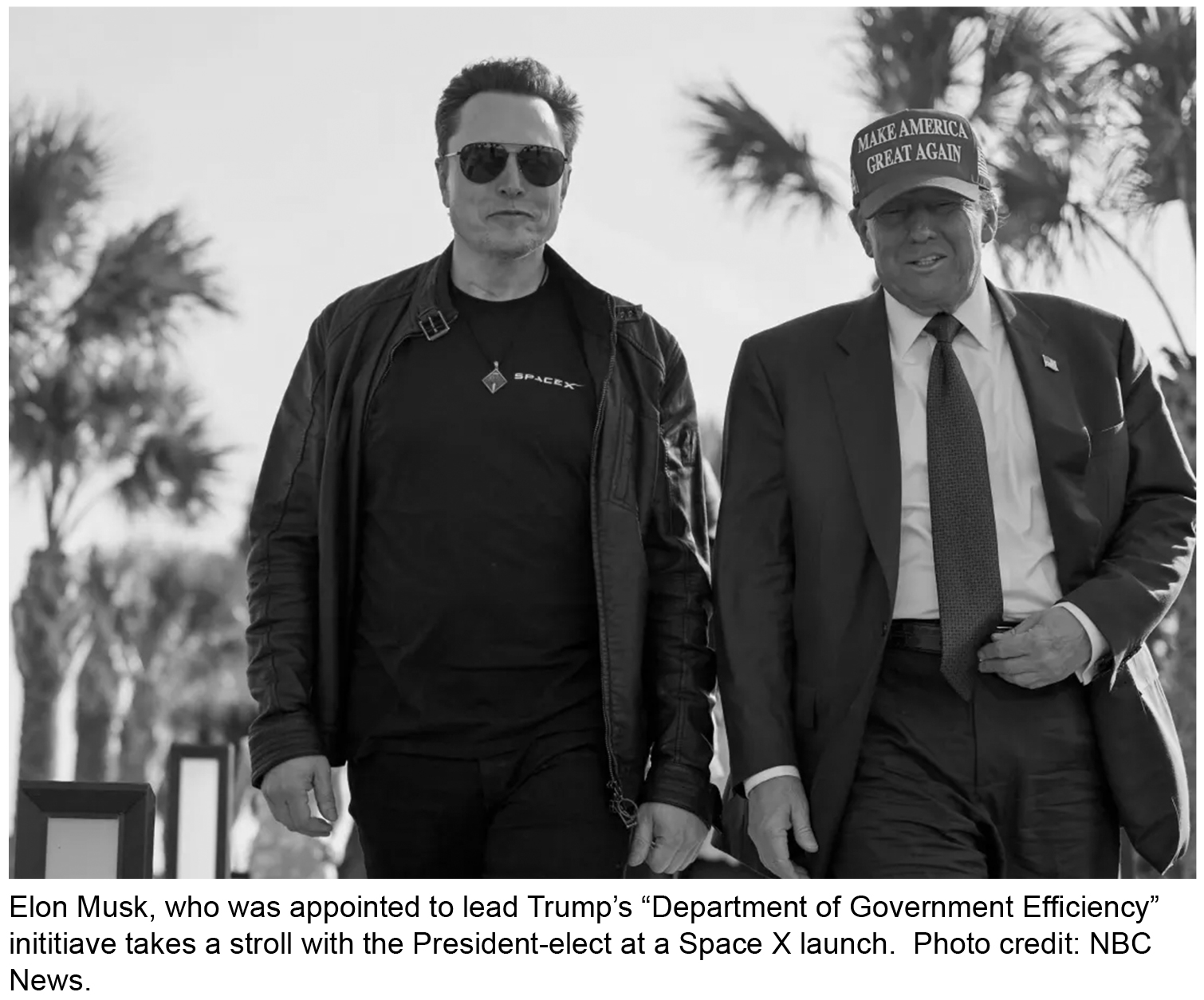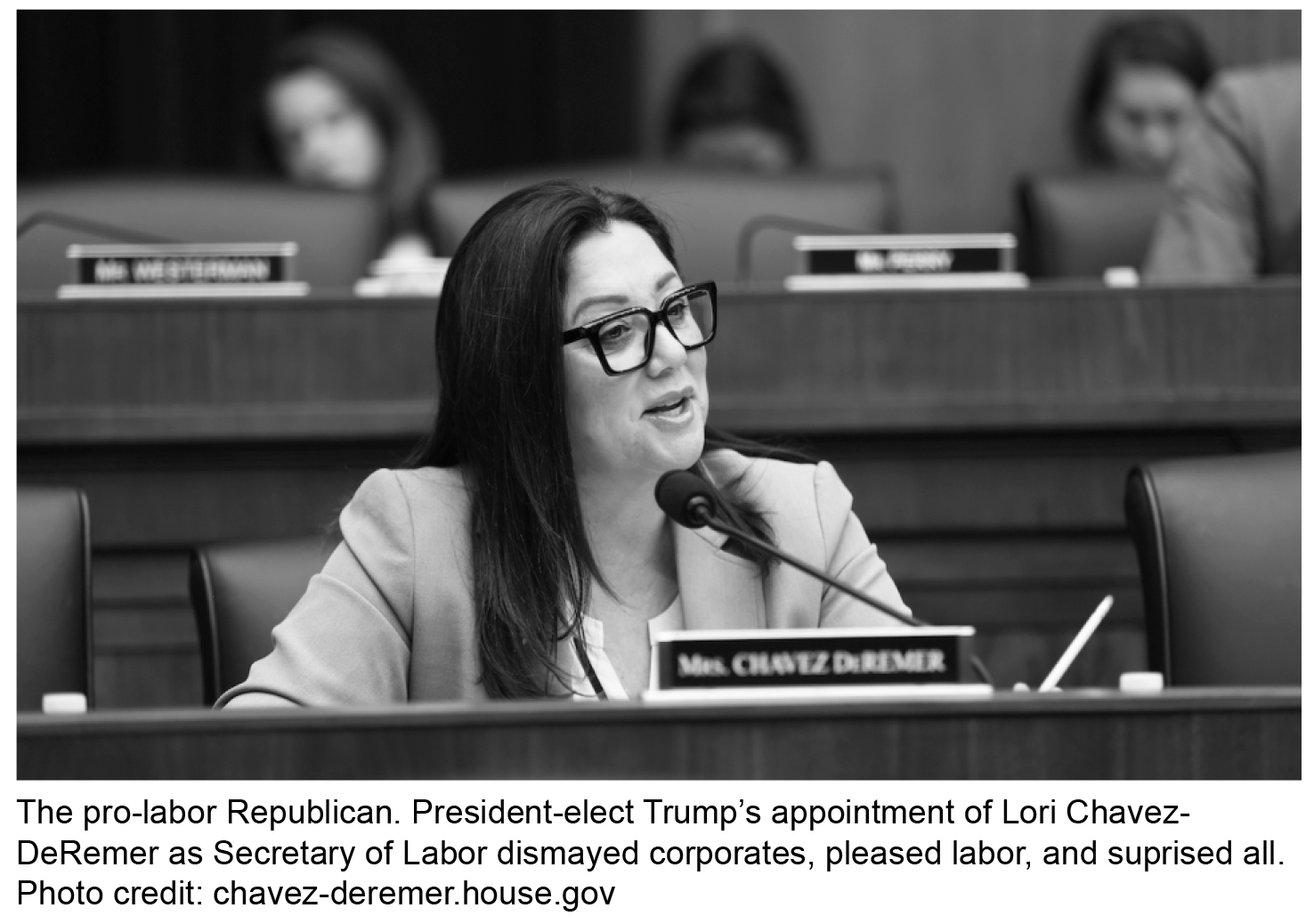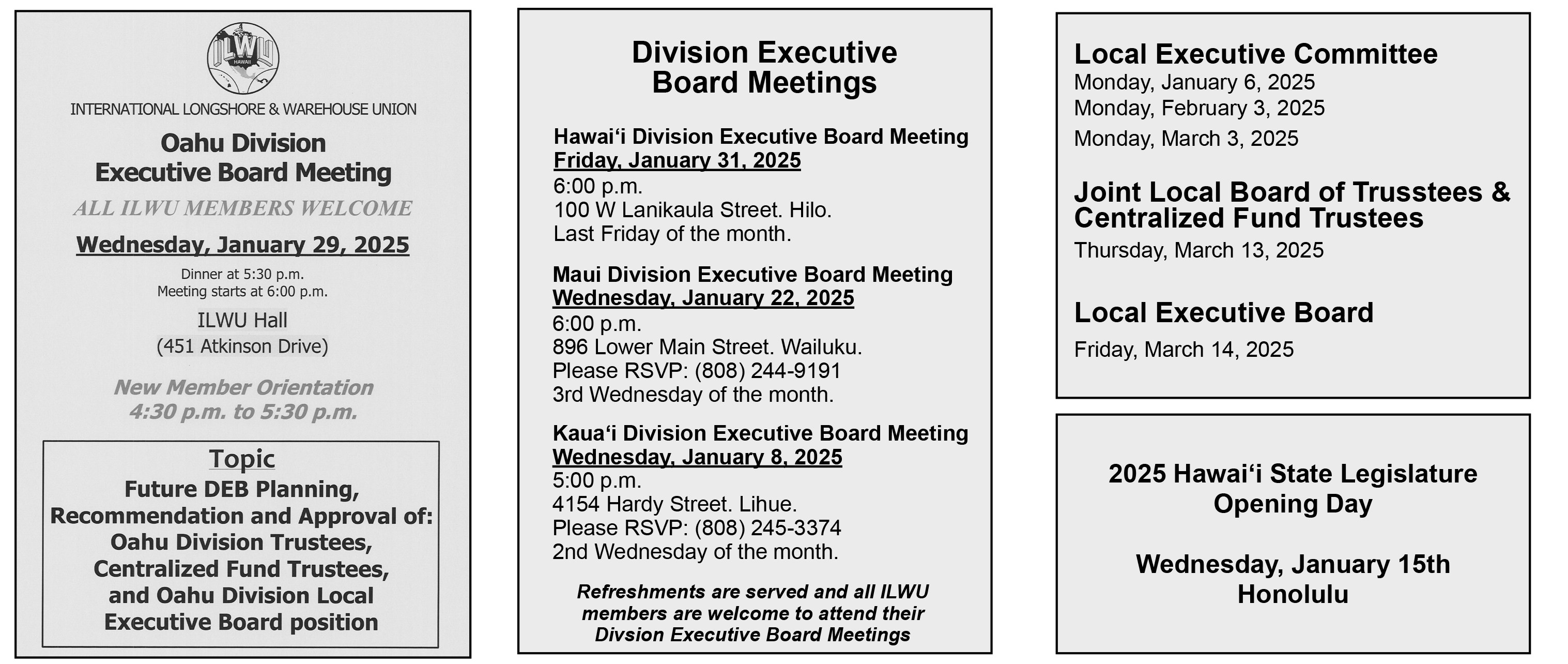
famous billionaire, has been appointed alongside fellow billionaire Vivek Ramaswamy to lead the “Department of Government Efficiency” (DOGE). Although not a formal federal department, DOGE is a special task force aimed at recommending federal spending cuts, personnel reductions, and departmental reorganizations. As a vocal opponent of the NLRB, Musk’s involvement in DOGE gives him a platform to pursue his goal of dismantling the board through budget and staffing cuts. However, the success of DOGE’s initiatives depends on the alignment of Congress and the President, who hold ultimate authority over federal restructuring. Lori Chavez-DeRemer: a surprising nomination Trump surprised many in the labor movement by nominating Oregon Congresswoman Lori Chavez DeRemer as Secretary of Labor. Chavez-DeRemer, one of only three
Republicans to vote for the worker friendly “PRO Act” (Protecting the Right to Organize Act), has defied her party’s anti-union stance. The PRO Act seeks to strengthen workers’ ability to unionize, weaken anti-union state laws, and curtail employers’ use of subcontractors to bypass collective bargaining. If confirmed, Chavez-DeRemer will oversee the Department of Labor, which enforces laws ensuring workers’ rights to fair wages, safe working conditions, and protection against discrimination. Her appointment could signal a shift in Trump’s administration, acknowledging the importance of working-class voters who helped elect him.
Chavez-DeRemer’s nomination suggests an acknowledgment of labor’s resurgence and its influence on the political landscape. Hawaiʻi: federal decisions matter Hawaiʻi’s workers are directly affected by federal labor law. From unfair labor practice (ULP) charges to organizing campaigns, the outcomes often depend on NLRB decisions. For example, the ILWU has filed ULP charges against the Outrigger Kaʻanapali Beach Resort for alleged anti-union activities. A labor board favoring corporate interests could dismiss these charges, while a pro worker board might rule in the union’s favor. Amazon’s recent arrival in Hawaiʻi adds another layer of complexity. Workers at its new delivery station on Oʻahu may someday attempt to unionize, and their efforts will depend on the NLRB’s enforcement of labor laws. For instance, a recent NLRB ruling deemed Amazon’s “captive audience meetings” illegal, marking a significant win for unionizing workers.
Proactivity is key It is clear that the Trump administration will favor corporate interests. However, the specifics of how these policies will impact working-class families remain uncertain. Chavez-DeRemer’s appointment hints at responsiveness to union voters, but workers cannot afford to wait passively. Staying informed and ready to mobilize will be crucial in defending labor rights. Labor unity in Hawaiʻi essential The ILWU’s guiding principles emphasize that the powerful financial interests of the country are united in resisting labor demands, and that labor must be equally organized. Post-election meetings among Hawaiʻi unions are focusing on strategies to strengthen organizing, education, and political action. The next four years promise to be pivotal for workers’ rights. Staying connected to union communications and participating actively in the labor movement will be critical to protecting the well-being of working-class families.


